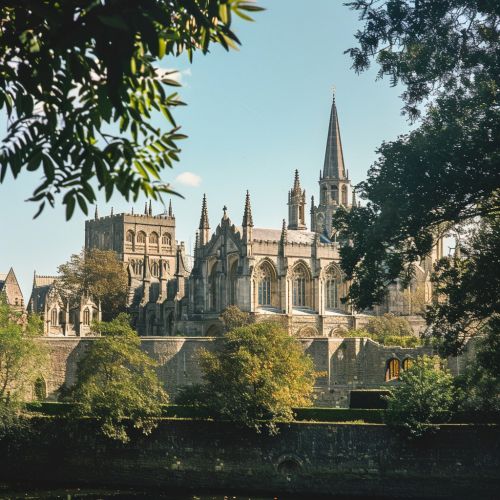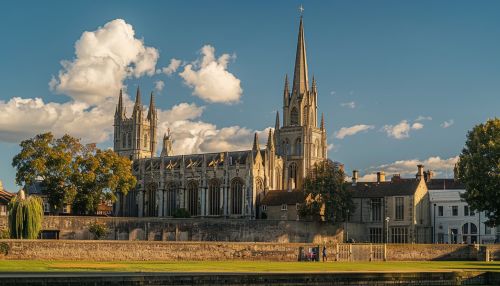Church of England
History
The Church of England is the established Christian church in England, and the mother church of the international Anglican Communion. It traces its history back to the Christian church recorded as existing in the Roman province of Britain by the third century, and to the 6th-century Gregorian mission to Kent led by Augustine of Canterbury.


The English church renounced papal authority when Henry VIII failed to secure an annulment of his marriage to Catherine of Aragon in 1534. The English Reformation accelerated under Edward VI's regents, before a brief restoration of papal authority under Mary I and Philip. The Act of Supremacy 1558 renewed the breach, and the Elizabethan Settlement charted a course enabling the English church to describe itself as both catholic and reformed.
Through the later 17th century, the Church of England and the government took varying positions. Under the 18th-century Hanoverians, it enjoyed a revival and grew more evangelical. The Oxford Movement in the 19th century emphasised the Roman Catholic heritage shared by the Church of England.
Doctrine and practice
The basic teachings of the Church of England, or Anglicanism, are expressed in its Book of Common Prayer. It is a mix of pre-Reformation doctrine and practices and Protestant Reformation teachings. The Church of England affirms the Nicene Creed, the Apostles' Creed, and the Athanasian Creed.
The Church of England has, as one of its defining characteristics, a breadth and "open-mindedness". This tolerance has allowed Anglicans who emphasise the Catholic tradition and others who emphasise the Reformed tradition to coexist.
Structure
The Church of England is organised into two provinces; each led by an archbishop (Canterbury for the Southern Province and York for the Northern). These provinces are further divided into dioceses, each led by a bishop and made up of several parishes.
The Church of England has maintained the episcopal form of government. It has been governed by bishops, presiding over dioceses. These are made up of parishes, each overseen by a parish priest, usually called a vicar or rector.
Social issues
The Church of England has been active in social issues throughout its history. It has made strong statements on issues such as the abolition of the slave trade and the reform of the Poor Laws, and more recently on the issues of homosexuality and poverty.
See Also
- Anglican Communion - History of Christianity in Britain - English Reformation
